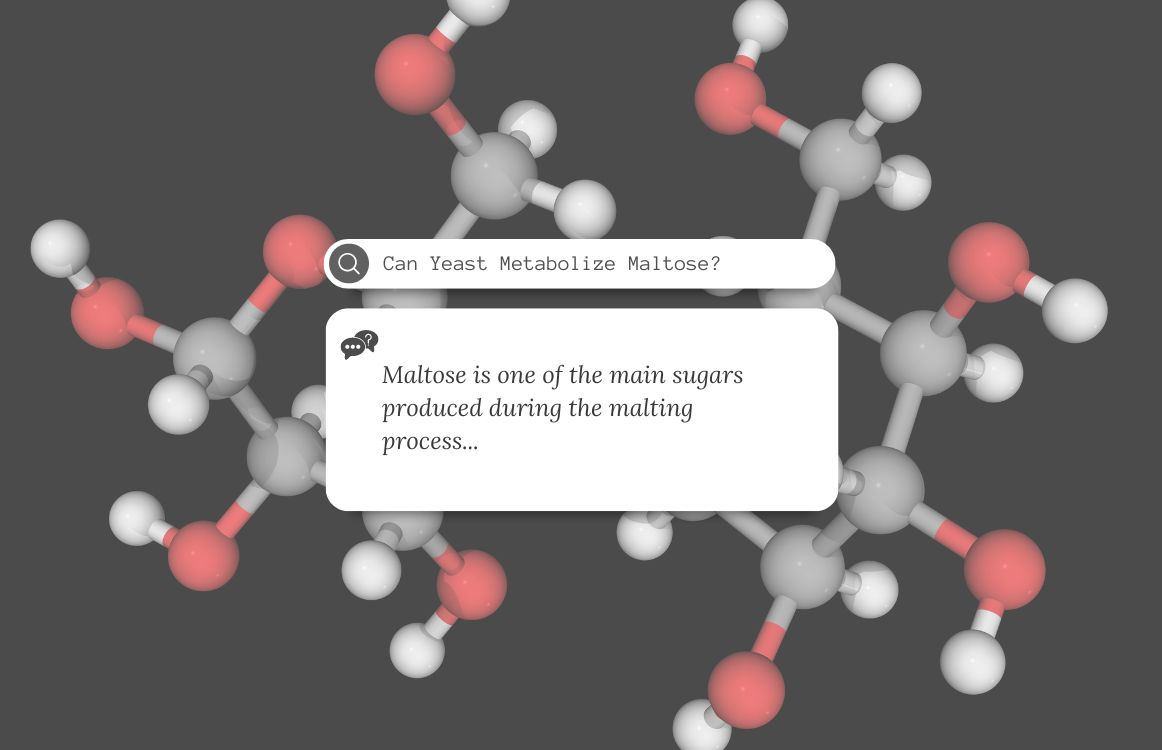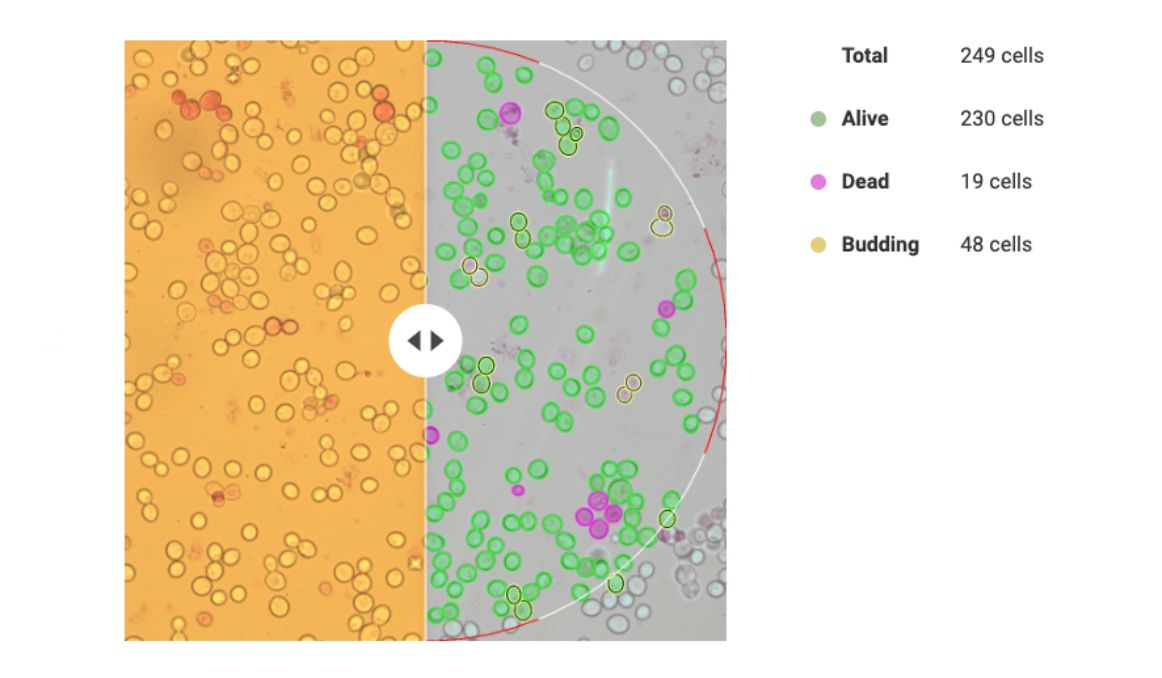Can Yeast Metabolize Maltose?

(This is an Oculyze Yeast Glossary entry)
As a brewer, you’re constantly working with maltose, as it is one of the main sugars produced during the malting process, a process during which the enzymes in the grain break down the starches into simple sugars, one of which is, of course, maltose.
So, can yeast metabolize maltose? YES! Maltose is a disaccharide made up of two glucose molecules linked together and yeast does have what it needs (namely an enzyme known as maltase) to break it down. In fact, maltose is one of the most important food sources for yeast in the process of beer brewing. Yeast can metabolize maltose and ferment it into alcohol and carbon dioxide, without which beer would not be beer.
As a bonus, maltose also contributes significantly to rounding up the flavor of your beer, but also defining its body and mouthfeel.
Test the World’s Smartest Automated Yeast Cell Counter!
Get complete control over your fermentation and save hundreds of thousands of dollars per year on just yeast alone! Just fill in the form below and you will receive an email with your login details for a Free Demo Account. Then you can upload your own images (or use the ones we’ll provide you for testing purposes) and check out all the cool features of the Oculyze Web App:
- Yeast cell concentration & viability
- Pitch rate calculator
- Fermentation tracking
- History of analyses



